
Survival data with eftilagimod alfa plus pembrolizumab compare favorably with historical results seen with standard-of-care therapies in this population.

Your AI-Trained Oncology Knowledge Connection!


Russ Conroy is an Associate Editor for CancerNetwork. He grew up in Hillsborough, New Jersey, and graduated from Rutgers University-New Brunswick in 2022.
On the weekends, he likes to unwind by playing video games with friends, tailgating at Rutgers football games with his family, or building his music collection with a visit to Princeton Record Exchange.

Survival data with eftilagimod alfa plus pembrolizumab compare favorably with historical results seen with standard-of-care therapies in this population.
!["Early [concurrent] CRT provides a significant survival benefit, while late [concurrent] CRT is an acceptable option," according to the study authors.](https://cdn.sanity.io/images/0vv8moc6/cancernetwork/fc2a0cb8c6d287fa539f7d61aad18a8752d347dc-1200x882.jpg?w=350&fit=crop&auto=format)
Whole-brain prophylactic cranial irradiation appears to confer minimal overall survival benefits in those with limited-stage small cell lung cancer.

Investigators of the phase 1/2 CFT7455-1101 study have determined cemsidomide at a dose of 100 µg safe for expansion.

Phase 1 data demonstrate enduring responses with ISB 2001 among patients with relapsed/refractory multiple myeloma.
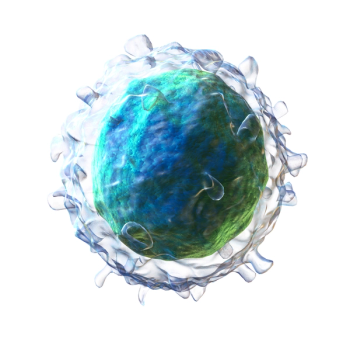
Investigators can restart the phase 3 ALLELE trial assessing tabelecleucel for patients with EBV-related posttransplant lymphoproliferative disease.

Clinical trial access alone appears to be insufficient in overcoming the worse survival outcomes observed in Black and Hispanic pediatric populations.
!["[O]ur analysis supports the clinical efficacy and safety of IsaKd as a first-salvage therapy in a specific, and still existing, subset of [patients with multiple myeloma] who relapse during lenalidomide maintenance following autologous stem cell transplantation," according to the study authors.](https://cdn.sanity.io/images/0vv8moc6/cancernetwork/b319d51b3dcc8ae143eae44a72a0aff757b330db-800x533.jpg?w=350&fit=crop&auto=format)
Extramedullary disease was the only factor that correlated with worse progression-free survival per multivariate analysis.
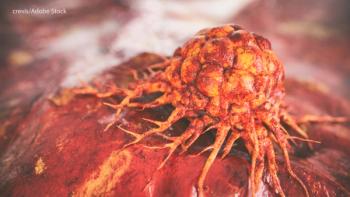
The FDA requires additional confirmatory evidence to progress the application for TLX101-CDx in this glioma indication.

The regulatory decision may offer more scheduling flexibility for patients who receive thiotepa for breast or ovarian cancer.
!["This [network meta-analysis] demonstrated for the first time that [anlotinib/benmelstobart plus chemotherapy] is the most efficacious regimen for extending survival in ES-SCLC, highlighting its potential as a preferred first-line treatment option for this patient population," according to the study authors.](https://cdn.sanity.io/images/0vv8moc6/cancernetwork/6934d676a539495d8b2109e4b3762700aa723bf3-1200x873.jpg?w=350&fit=crop&auto=format)
Data may support anlotinib/benmelstobart plus chemotherapy as a preferable frontline treatment option in extensive-stage small cell lung cancer.
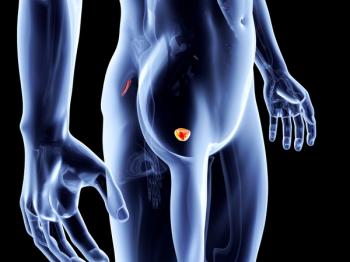
A recommendation from an independent data monitoring committee prompted the discontinuation of the phase 3 CAPItello-280 trial.

Data show that patients who undergo grade group 1 prostatectomies may experience an increased likelihood of higher risk features.
!["[These] data provide framework to assist in patient counseling and optimizing selection," according to the study authors.](https://cdn.sanity.io/images/0vv8moc6/cancernetwork/afc4e7af61f986692735b0d673f3933a45f75fc2-2249x2250.png?w=350&fit=crop&auto=format)
Findings may establish a framework for assisting patient counselling and optimizing therapy selection for those undergoing radical cystectomy.
![“[O]ur findings show that large-scale lung cancer screening is both feasible and effective, and provide a framework for successful delivery of a population-based national program,” according to the study authors.](https://cdn.sanity.io/images/0vv8moc6/cancernetwork/555f5be80532573a6654f0b562c43e11aedf99df-1200x857.jpg?w=350&fit=crop&auto=format)
Study data show a small number of individuals with a lung cancer diagnosis within 12 months of a negative baseline screening result.
![“These findings highlight the critical need to address PEM in the management of [patients with multiple myeloma] with ACHF to mitigate the associated poor clinical outcomes,” according to the study authors.](https://cdn.sanity.io/images/0vv8moc6/cancernetwork/4de1e119837b011168a7884a19a600b14bb6a258-3600x2400.jpg?w=350&fit=crop&auto=format)
Findings indicate a need to address protein-energy malnutrition in the treatment of those who have multiple myeloma with acute congestive heart failure.

Final analysis data from the phase 3 ALCYONE trial support using frontline daratumumab-containing regimens for those with transplant-ineligible NDMM.
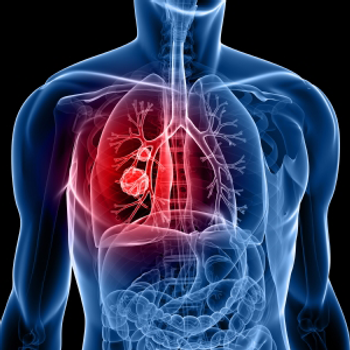
Findings from the phase 1/2 LUPER trial support further assessment of lurbinectedin plus pembrolizumab in relapsed small cell lung cancer.

Findings from a multicenter cohort study support screening adherence as a key lung cancer screening quality metric.
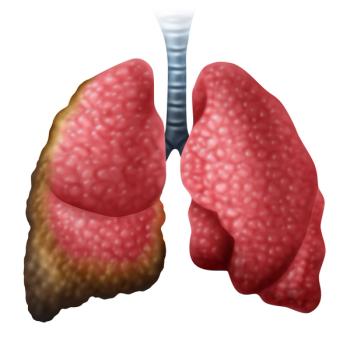
A systematic review shows that well-designed randomized clinical trials are necessary to optimize treatment strategies with tislelizumab in lung cancer.
![“These results and the lack of systemic toxicity observed with [TTFields] provide patients with a promising new treatment option,” according to Joachim Aerts, MD, an investigator of the phase 3 LUNAR trial (NCT02973789).](https://cdn.sanity.io/images/0vv8moc6/cancernetwork/7d7dfad7849391f4be3ebd2cf39c24f5369cfcd1-1200x1176.jpg?w=350&fit=crop&auto=format)
Data from the phase 3 LUNAR trial support the Conformité Européenne Mark for tumor treating fields in metastatic non–small cell lung cancer.

Data from a Japanese trial add to the body of evidence supporting the favorable efficacy and safety of nadofaragene firadenovec for this NMIBC population.

Disease control following radiotherapy appeared to be optimal in a retrospective cohort of patients with multiple myeloma.

Phase 3 data support using twice-daily high-dose thoracic radiotherapy plus concurrent chemotherapy as an alternative therapy for patients with LS-SCLC.

Data from the phase 3 CEPHEUS trial support the European Commission’s approval of the daratumumab-based regimen.

Patient-reported adverse effects associated with tarlatamab appeared to be generally mild in the phase 2 DeLLphi-301 trial.

An objective assessment tool like the ICE Score may standardize grading of neurotoxicity associated with newer bispecific antibodies in hematologic cancer.
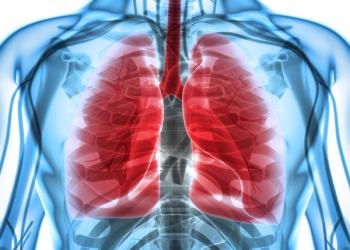
Real-world data may support a new way to consider follow-up treatment for patients who are older with extensive-stage small cell lung cancer.

Data from the LOXO-TRK-14001, SCOUT, and NAVIGATE trials support the full approval of larotrectinib in NTRK gene fusion-positive tumors.
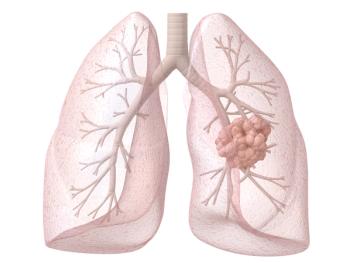
Investigators will assess the safety, pharmacology, and maximum tolerated dose of ST-001 in relapsed/refractory SCLC as part of a phase 1a/1b trial.

Combining durvalumab with chemotherapy produced a good safety profile without increasing surgical risk in the phase 2 iNDUCT-GETUG V08 trial.